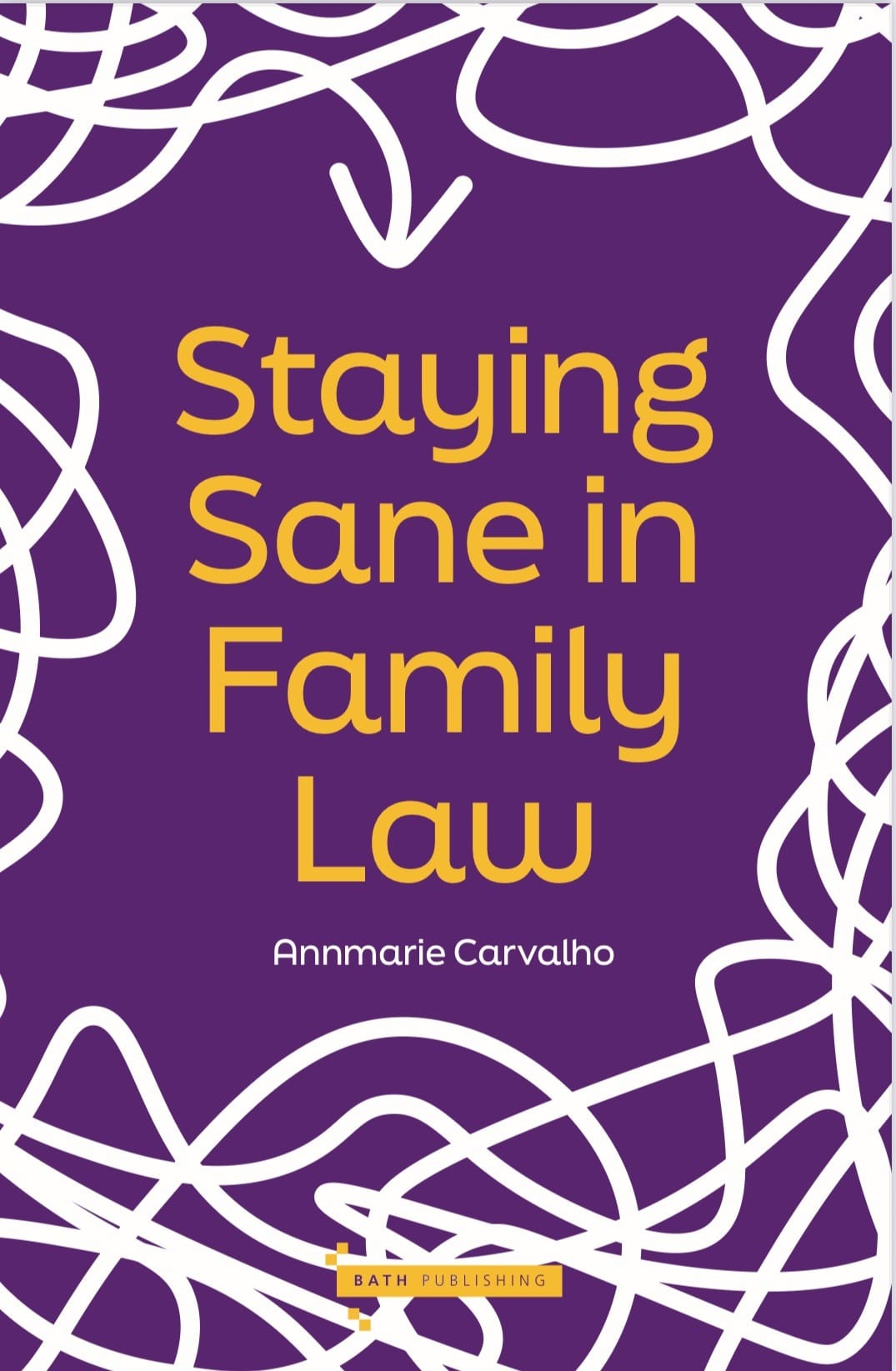Book Review: Staying Sane in Family Law
Sharon Segal KC of 1GC Family Law reviews the book Staying Sane in Family Law by Annmarie Carvalho, a 2025 book from Bath Publishing.
Annmarie Carvalho (Bath Publishing, 2025)

Working in the field of family law is challenging. We are, as practitioners, parachuted into our clients’ lives when they are at their lowest and most vulnerable. And yet, we are given so little training as to how to respond to those high emotions and stress, or how to support our own mental health whilst doing so.
There are lots of books about wellbeing; there are lots of books about family law. There is nothing quite like this one. Written by a former family lawyer (now therapist and trainer), for family lawyers and associated professionals, Staying Sane in Family Law helps us understand the psychological dynamic with our clients and why it matters. It gives us the tools to better manage our interactions with them.
The book is split into two parts. Part One entitled ‘Law and Life’ looks at the psychology of family law, our own functioning and how that impacts on our relationship with our clients. For colleagues at the Bar, there is a real understanding of the dynamics we navigate when we enter what is already a pre-existing relationship between our clients and their solicitor, and when we very often have to deliver difficult advice, to clients who do not want to hear it.
Part Two ‘Coping with Strife’ guides us in building supportive relationships with our clients. It takes us through a range of topics that are crucial to understanding our clients’ motivations and identifies approaches that might assist our communications with them. Those approaches are insightful and pragmatic and will provide even the most experienced lawyer with new tools to improve client relationships.
The book covers a vast array of topics, no doubt each on their own could fill a book. However, the book skilfully balances the theory and the practice with the right amount of detail to guide us through.
The chapters on motivational interviewing are standout. They provide tools and techniques to assist us in delivering advice to even the most entrenched and resistant client, whilst creating a sense of agency and collaboration. The book demonstrates how working in a slightly different way can unlock even the most challenging client relationship. Throughout, the book references a range of therapeutic tools and techniques to assist us in building more psychologically informed foundations for our interactions and does so by giving concrete examples and practical advice, whilst avoiding unnecessary jargon.
The book has chapters on working with vulnerable people, those who have suffered trauma and mental health disorders, addiction and suicidality. These are dealt with sensitively and with practical guidance as to how to manage these complex and challenging issues. The book provides an arresting insight into how the family justice system is so alienating for neurodivergent people and identifies specific approaches that might make it more accommodating for our neurodivergent clients.
As the title suggests, this book is also about helping us, as practitioners, manage the high expectations of our clients (and often ourselves), and the responsibility of managing their case. The book has a chapter on imposter syndrome; it addresses the pressures that we feel and which we put on ourselves. It teaches us to focus on what we can control in any given situation. It addresses the impact of vicarious trauma, recognising it and providing ways to help manage it.
The book is accessible in every way. The chapters are short, with clarity of message and conclude with some posed questions which cause the reader to reflect and digest the material.
Case studies are peppered throughout the book which bring a real-life focus. Practitioners will easily be able to identify with the examples given; they are relatable.
Written in a conversational style, the book is easy to read and relevant. It is also an enjoyable read because of its solution-focussed approach, despite the often-challenging subject matter. Drawing on her own vast experience as a lawyer, mediator and therapist, Annmarie’s writing feels authentic and honest.
We are not therapists; that is not why our clients come to see us but, as the book sets out ‘if you are working with people in distress, then emotions and psychology are a fundamental aspect of your job. There is no way round it’.
The book should be considered required reading for any junior practitioner starting out in a career in family law, in whatever discipline, but it is not just for newly qualified lawyers. No matter how long you have been working in the field, in whatever role, this book will inform, challenge and maybe even change, for the better, how you work and interact with clients. Staying Sane in Family Law is a comprehensive and invaluable resource; I cannot recommend it highly enough for anyone working within family law.






